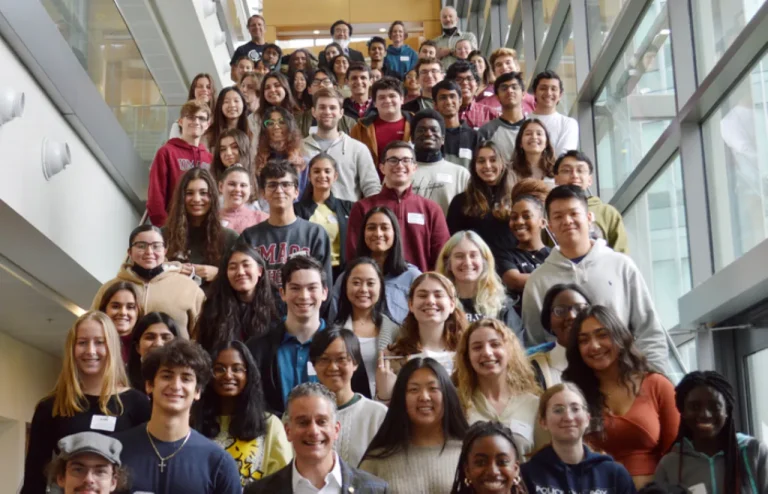Examining Religion Through A Scientific Lens: Beliefs, Practices, And Social Impact
The question of which religion is ‘best’ according to science invites exploration of how religious beliefs develop, their intersection with human psychology and sociology, and their impacts on followers and society.
This nuanced question does not have a simple, definitive scientific answer. All major faiths provide meaning, community, and moral foundations that their adherents consider ‘best’ for themselves.
In this in-depth examination, we will explore various religious beliefs and practices through an objective, scientific lens and analyze their personal and societal influences. We aim not to judge truthfulness or superiority, but to foster thoughtful understanding of this complex topic.
The Scientific Study of Religion
Religion has been a fundamental aspect of human society for centuries, shaping beliefs, guiding practices, and impacting communities. While religion is often viewed as a matter of faith and spirituality, it can also be studied through a scientific lens.
The scientific study of religion seeks to understand the origins, development, and social impact of religious beliefs and practices.
Origins and Evolution
One area of scientific inquiry is the origins of religious beliefs. Researchers explore questions such as: How did religious ideas emerge in human history? What factors influenced their development? By examining archaeological evidence, ancient texts, and evolutionary psychology, scientists are piecing together a clearer understanding of how religious beliefs evolved over time.
For example, studies have shown that humans have a natural predisposition to seek meaning and purpose. This inclination, combined with our tendency to attribute agency to events, may have laid the foundation for the development of religious beliefs.
By studying the cognitive processes and social dynamics behind religious thought, researchers are gaining insights into the roots of religious ideas.
Social Impact
Religion has a significant impact on societies and communities around the world. The scientific study of religion examines how religious beliefs and practices influence social behavior, group dynamics, and societal structures.
For instance, research has shown a correlation between religious involvement and various positive outcomes, such as better mental health, increased social support, and a sense of purpose. These findings highlight the potential benefits of religious engagement for individuals and communities.
However, it is important to note that the impact of religion is complex and can vary across different cultures, belief systems, and individual experiences.
Interdisciplinary Approach
The scientific study of religion is inherently interdisciplinary, drawing upon insights from fields such as psychology, sociology, anthropology, and neuroscience. By integrating knowledge from multiple disciplines, researchers can develop a more comprehensive understanding of the complex phenomenon of religion.
For example, psychologists may investigate how religious beliefs shape individuals’ attitudes and behaviors, while sociologists may explore the role of religion in shaping social norms and institutions.
This collaborative approach allows for a holistic examination of religion, taking into account its cognitive, emotional, social, and cultural dimensions.
Interested in learning more about the scientific study of religion? Check out resources from reputable organizations like the Pew Research Center and the American Anthropological Association.
Psychology and Neuroscience of Religious Beliefs
The study of psychology and neuroscience has shed light on the intricate relationship between religious beliefs and the human mind. Researchers have explored how religious beliefs are formed, how they shape our thoughts and behaviors, and the impact they have on our overall well-being.
Formation of Religious Beliefs
Psychologists and neuroscientists have found that religious beliefs often emerge from a combination of cultural, social, and psychological factors. From childhood, individuals are exposed to religious teachings and rituals, which can shape their beliefs and values.
Additionally, personal experiences, such as feelings of transcendence or moments of deep connection, can also play a role in the formation of religious beliefs.
Cognitive Processes and Religious Beliefs
Research has shown that religious beliefs can influence various cognitive processes, including perception, attention, and memory. For example, individuals who hold strong religious beliefs may be more likely to interpret ambiguous situations in a way that aligns with their religious worldview.
Similarly, religious practices such as meditation or prayer have been found to enhance attention and improve cognitive functioning.
Religious Beliefs and Well-being
Studies have consistently shown a positive correlation between religious beliefs and well-being. Religious individuals often report higher levels of life satisfaction, happiness, and overall mental health.
This relationship may be attributed to the social support, sense of purpose, and coping mechanisms that religious communities provide. Furthermore, religious beliefs can provide individuals with a framework for understanding life’s challenges and finding meaning in difficult circumstances.
Neuroscience of Religious Experiences
Neuroscience research has also explored the neural mechanisms underlying religious experiences. Studies using brain imaging techniques have identified specific brain regions that are activated during religious practices such as prayer or meditation.
These regions are associated with emotions, self-reflection, and feelings of transcendence. Understanding the neural basis of religious experiences can provide insights into the profound impact that religion has on human cognition and emotion.
Sociological Research on Religious Practices and Communities
Sociological research plays a crucial role in understanding the dynamics of religious practices and their impact on communities. By examining religious practices from a scientific lens, researchers aim to shed light on the beliefs, rituals, and social structures that shape religious communities.
Through rigorous data collection and analysis, sociologists are able to provide valuable insights into the role of religion in society.
Exploring Religious Beliefs and Rituals
Sociological research allows us to delve into the intricate beliefs and rituals that are central to religious practices. By studying various religious traditions, researchers can uncover the reasons behind certain beliefs and rituals and how they impact individuals and communities.
For example, a study conducted by Pew Research Center found that religious beliefs and practices have a significant influence on the values and attitudes of individuals, shaping their worldview and guiding their behaviors.
Understanding the Social Impact of Religion
Religion has a profound impact on society, shaping social norms, values, and institutions. Sociological research helps us understand how religious communities contribute to social cohesion, social change, and the formation of social identities.
For instance, studies have shown that religious communities often provide social support networks, fostering a sense of belonging and solidarity among their members. This social cohesion can have positive effects on mental health and overall well-being.
Additionally, sociologists have examined the role of religion in promoting social change and advocating for social justice. For example, the civil rights movement in the United States was heavily influenced by religious leaders and organizations, who played a crucial role in challenging racial inequality and promoting equal rights for all.
Sociological research helps us understand the mechanisms through which religious communities can mobilize for social change and create a more equitable society.
Comparative Studies on Religious Practices
Comparative studies in sociology allow us to analyze religious practices across different cultures and societies. By examining similarities and differences in religious beliefs, rituals, and social structures, researchers can gain a more comprehensive understanding of the diversity and complexity of religious practices worldwide.
For example, a comparative study conducted by Cambridge University Press found that while Christianity is the most widely practiced religion globally, there are significant variations in religious beliefs and practices among different Christian denominations and regions.
Moreover, such comparative studies enable us to explore the intersections between religion and other social phenomena, such as gender, race, and class. By examining how religion intersects with other social categories, sociologists can uncover the ways in which religious practices and communities can either reinforce or challenge existing social hierarchies and inequalities.
Positive and Negative Social Impacts of Religions
Religions have played a significant role in shaping societies and influencing social behavior throughout history. While the impact of religions varies across different cultures and time periods, there are both positive and negative social impacts associated with religious beliefs and practices.
Positive Social Impacts
One of the key positive social impacts of religions is the sense of belonging and community that they provide. Religious communities often serve as a support system for their members, offering a place to connect, share values, and find emotional and practical support.
This sense of belonging can contribute to overall well-being and mental health, fostering a sense of identity and purpose in individuals.
Religions also play a crucial role in promoting moral values and ethical behavior within societies. Many religious teachings emphasize principles such as compassion, honesty, and respect for others. These moral values provide a foundation for social cohesion and guide individuals in their interactions with others.
Religions often encourage acts of charity and service towards others, promoting a sense of altruism and social responsibility.
Furthermore, religions often serve as a catalyst for positive social change and activism. Throughout history, religious leaders and communities have been at the forefront of social movements, advocating for the rights of marginalized groups, fighting against injustice, and promoting equality.
Religious organizations often provide resources and support for social initiatives, such as providing aid to those in need, advocating for environmental sustainability, and promoting education and healthcare.
Negative Social Impacts
While religions have the potential to bring about positive social change, they can also have negative impacts on society. One of the main criticisms of religions is the potential for intolerance and discrimination.
Some religious beliefs and practices may contribute to the marginalization or exclusion of certain groups based on factors such as gender, sexual orientation, or religious affiliation. This can lead to social divisions and conflicts within societies.
Another negative social impact of religions is the potential for dogmatism and rigid adherence to religious doctrines. In some cases, this can lead to the suppression of critical thinking and the rejection of scientific advancements or alternative perspectives.
This can hinder progress in areas such as education, healthcare, and human rights, limiting societies’ ability to adapt to changing circumstances and address pressing issues.
It is important to note that the social impact of religions is complex and multifaceted, varying greatly depending on the interpretation and application of religious teachings. While religions have the potential to bring about positive change, it is crucial to critically examine their social impacts and address any negative consequences that may arise.
For more information on the social impacts of religions, you can visit websites such as Pew Research Center or ReligionLink.
Can Science Evaluate Religious Truth Claims?
When it comes to evaluating religious truth claims, science and religion often seem to be at odds with each other. While science relies on empirical evidence and the scientific method to understand the natural world, religious beliefs are often based on faith and personal experiences.
So, can science really evaluate religious truth claims?
The Limitations of Science
Science is a powerful tool for understanding the natural world and explaining phenomena through empirical evidence. However, it has its limitations when it comes to evaluating religious truth claims. Science is unable to empirically test or prove the existence of a higher power or the validity of religious texts.
These claims are often based on faith, personal experiences, and subjective beliefs, which fall outside the realm of scientific inquiry.
Religious truth claims are often rooted in concepts such as the existence of a higher power, the nature of the soul, or the purpose of life. These are existential questions that science, as a discipline, is not equipped to answer.
Science can explore the physical and natural aspects of our world, but it cannot provide definitive answers to questions of faith and spirituality.
The Importance of Mutual Respect
While science may not be able to evaluate religious truth claims in a scientific sense, it is important to recognize that science and religion can coexist and offer different perspectives on the world.
Both science and religion play significant roles in many people’s lives, providing different ways of understanding and making sense of the world around us.
It is essential to approach the topic of evaluating religious truth claims with mutual respect and open-mindedness. Recognizing that different individuals and communities may have diverse beliefs and perspectives is crucial in fostering understanding and tolerance.
Seeking Common Ground
While science and religion may differ in their methodologies and approaches, they can also find common ground in areas such as ethics, morality, and the pursuit of knowledge. Both science and religion seek to explore fundamental questions about the nature of reality, the origins of life, and our place in the universe.
Many scientists and religious individuals find that their beliefs and practices are not mutually exclusive but rather complement each other. They see science as a way to understand the natural world and religion as a way to explore the deeper meaning and purpose of life.
Conclusion
While science can elucidate patterns in how religions emerge and influence societies, it cannot definitively prove absolute ‘truth’ or superiority of one faith over others.
Ultimately, religious beliefs provide meaning and community for billions based on faith rather than scientific evidence. An examination through a scientific lens can foster greater understanding and tolerance.







